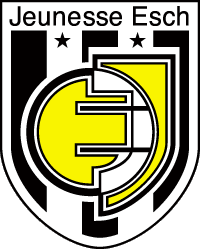Finland. Still the same complicated formula of the top-level championship.

MP Mikkeli dominated the Second Division and won it with 6 points cushion. They lost only 2 games this year and got the only direct promotion.
Reipas Lahti finished 2nd, thanks to better goal-difference (LauTP Lappeenranta lost the battle, both teams ending with 30 points), and went to promotion/relegation play-off against Koparit (Kuopio), 11th in First Division. Reipas failed to return to top flight – they lost the first leg at home 0-1 and the 2-2 tie in Kuopio favoured the hosts.
Once again the regular season mattered largely for those at the bottom of the league.

KPV (Kokkola) was not up to the task and ended last with 12 points. Directly relegated, of course.
A bit above them, a drama unfolded: OTP (Oulu) and Koperit (Kuopio) finished with14 points each and had to clash in a play-off to determine which team will be safe and which one will face Reipas (Lahti) in the promotion/relegation play-off. OTP prevailed 3-1 and did not repeat the previous season, when they had to play the dreaded play-off. Back then they survived. This year they survived again, only a bit earlier.

Thus, Koparit took 11th place and went to face Reipas (Lahti), hoping to keep their place in First Division. As it is mentioned above, they succeeded.
OTP (Oulu) was 10th and PPT (Pori) – 9th, but the there were 5 points difference between them and PPT was never in danger of relegation. Disappointing season for Haka (Valkeakoski) – 8th with 19 points, above PPT only on better goal-difference. RoPS (Rovaniemi) – 7th with 22 points

KuPS (Kuopio) – 6th with 25 points.

Unlucky Kuusysi (Lahti) – they and Ilves (Tampere) finished with 27 points each and went to play-off to see which one will go ahead. After overtime, the result was 3-3 and Ilves was luckier in the penalty shoot-out: 6-5. Kuusysi missed the real final of the season, so may be they were not to be imagined super-power of the country.
The top 4 teams went ahead to the semi-finals, but let finish with the first-stage table: Ilves (Tampere) was 4th with 27 points, KePS (Kemi) – surprisingly, 3rd with 28 points. HJK (Helsinki) – 2nd with 28 points, and TPS (Turku) – 1st with 29 points. As the table shows, practically 5 teams were equal and after Kuusysi was weeded out, it looked like any team could win.

TPS (Turku) may be spent more than they should in the first phase, for they started badly the semi-finals and did not recovered: they lost 1-3 to Ilves in Tampere and were kept at bay in the second leg too – 1-1. In the other semi-final no miracle happened, although the underdog tried hard – KePS won at home 3-2, but lost the second leg in Helsinki 0-1 and HJK qualified on the away-goal rule.
Still, KePS ended the season well – after exchanging 1-0 victories with TPS, they prevailed in the penalty shoot-out 5-4 and grabbed the bronze medals. Wonderful season for this obscure club and its fans. The first leg of the final was played in Tampere and Ilves won 1-0. But that was that… in Helsinki HJK won 4-1.

Dramatic season for Ilves – they barely got a spot in the final stage, but probably boosted by that, went to the final, having a chance to win the title. However, it looked like they were not strong enough, may be running more on enthusiasm than skill, and seasoned fighter like HJK destroyed them.

HJK (Helsinki) added one more title to their record – not an easy victory, but they got their timing right and evidently were in excellent condition at the end of the season, when it was all or nothing. The squad was: Terry Lee, Reijo Linna, Erkki Valla, Markku Palmroos, Mika Muhonen, Petteri Schutschkoff, Markku Kanerva, Erik Holmgren, Jari Rantanen, Juha Dahllund, Jyrki Nieminen. The rule of the 1980s: foreigners more or less determined the fate of a club – whoever had them, played better.
HJK aimed for a double, but it was not to be. In the Cup final they met Haka (Valkeakoski) and there was no winner – 2-2 after extra time. The penalty shoot-out was perhaps too nervous affair for both teams, for penalties were missed and eventually Haka won 2-1.

Good year for HJK (Helsinki), no doubt, but they unable to win a double.

Haka (Valkeakoski) managed to win the Cup and thus to save otherwise weak season. Old fighters, they proved again the power of tradition in football: Haka was one of historically successful clubs and even when not in good shape, they still were able to rise to the occasion. Well done.














